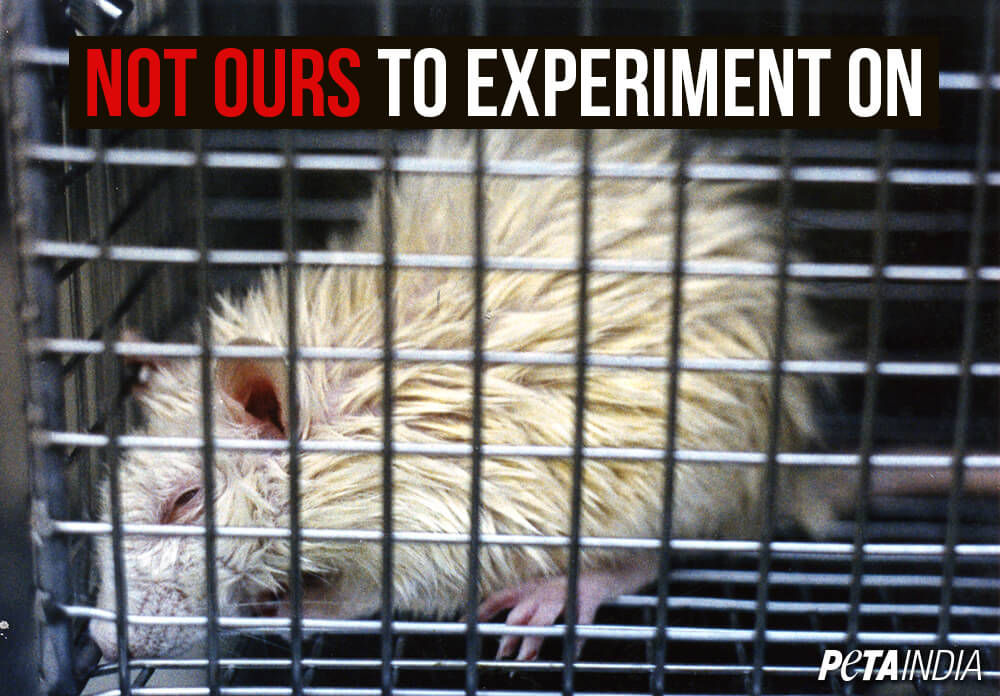Medical Council to Universities: Use Non-Animal Teaching Methods
Animals used in university medical courses are confined to small cages, cut up and killed, but PETA India is able to reveal that all that is changing. That’s because, following pressure from PETA India, MP Maneka Gandhi and Dr Shashi Tharoor, Minister of State for Human Resources Development, the Medical Council of India (MCI) has amended its education regulations to call for the use of modern non-animal teaching methods.

The guidelines for the Establishment of Medical College Regulations, 1999, and the Minimum Standard Requirements for 50/100/150/200/250 MBBS Admissions Annually Regulations, 1999, now read as follows, as published in The Gazette of India: “For teaching Physiology and Pharmacology in [an undergraduate] curriculum, the required knowledge and skills should be imparted by using Computer Assisted modules”.
In 2012, the Ministry of Environment and Forests (MoEF) advised the MCI to replace the use of animals in teaching with modern non-animal methods, such as simulation software, for both graduate and post-graduate medical students. The guidelines point out that even in cases of medical research, in vitro studies should be carried out before studies on animals. In 2013, following a PETA request, Tharoor wrote to Health Minister Ghulam Nabi Azad asking him to replace the use of animals in teaching medical students. The MCI’s action places Indian universities alongside prestigious peers. Nearly 97 per cent of US medical schools – including Harvard, Yale and Stanford – do not use any animals to train medical students, and experience with dissection or experimentation is not required of those who apply to medical school.
PETA is now urging the MCI to make similar recommendations for post-graduate education in order to comply with MoEF guidelines.
Please contact PETA if your medical school continues to use animals in teaching.







